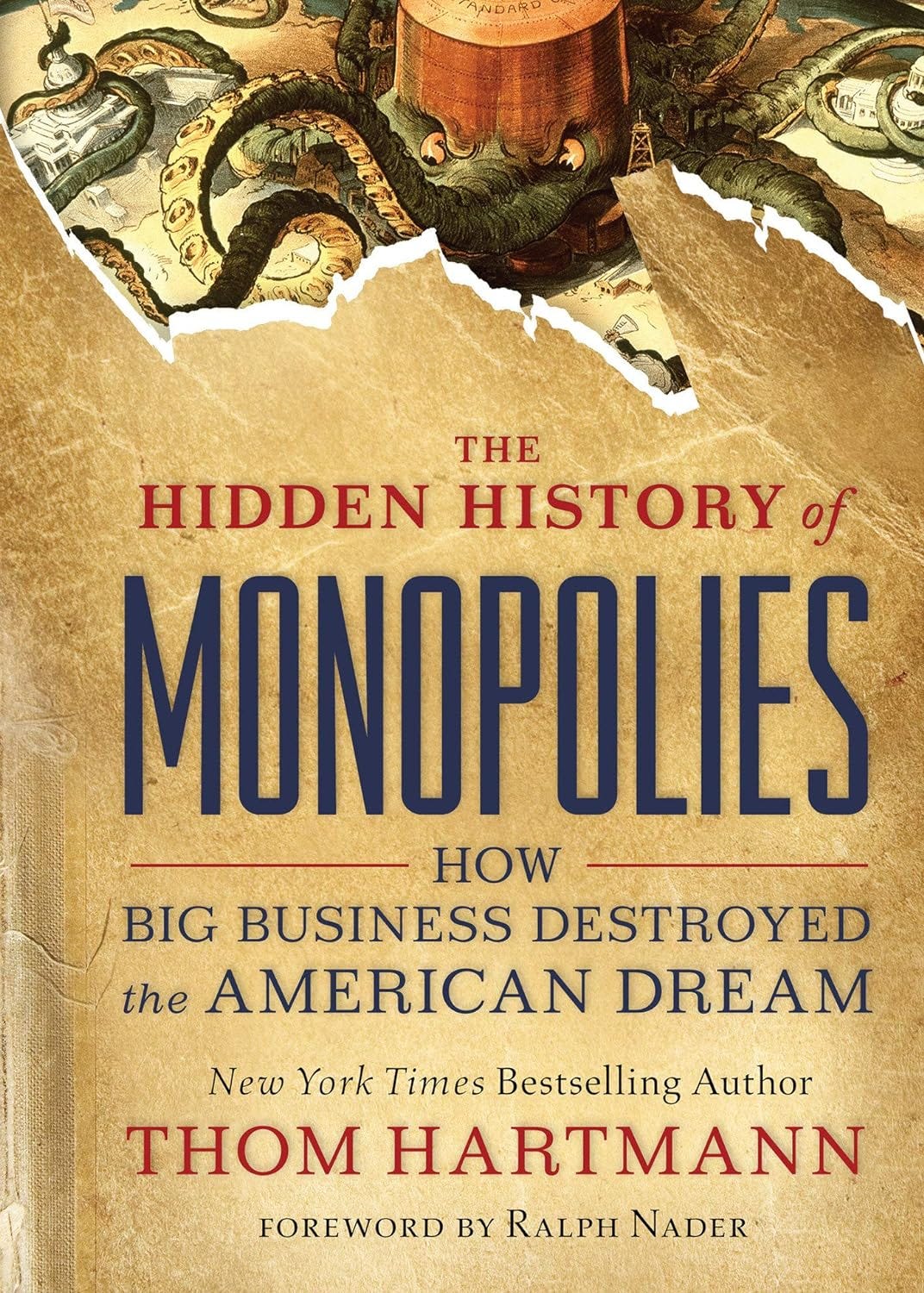The Fortunes Bork Made
The Hidden History of Monopolies: How Big Business Destroyed the American Dream

Bork was Richard Nixon’s solicitor general and acting attorney general and had a substantial impact on the thinking in the Reagan White House—so much so that Reagan rewarded his years of hard work on behalf of America’s monopolists with a lifetime appointment to the federal bench in the DC Circuit, frequently a launching pad for the Supreme Court.
In the years following Lewis Powell’s 1971 memo, as numerous “conservative” and “free market” think tanks and publications grew in power and funding, Bork’s ideas gained wide circulation in circles of governance, business, and the law.
In 1977, in the case of Continental T.V., Inc. v. GTE Sylvania, the Supreme Court took up Bork’s idea and, for the first time in a big way, embraced the “welfare of the consumer” and “demonstrable economic effect” doctrines that Bork had been promoting for over a decade.
Neither of those phrases exists in any antitrust law, at least in Bork’s context. Nonetheless, the Supreme Court embraced Bork’s notion that the sole metric by which to judge monopolistic behavior should be prices that consumers pay, rather than the ability of businesses to compete or the political power that a corporation may amass.
When Ronald Reagan entered the White House in 1981, bringing with him Bork’s free market philosophy and a crew from the Chicago School, he ordered the Federal Trade Commission to effectively stop enforcing antitrust laws even within the feeble guidelines that the Supreme Court had written into law in GTE Sylvania.
The result was an explosion of mergers-and-acquisitions activity that continues to this day, as industry after industry concentrated down to two, three, four, or five major players who function as cartels. (A brilliant blow-by-blow cataloging of that decade is found in Barry C. Lynn’s book Cornered: The New Monopoly Capitalism and the Economics of Destruction.)
Bork’s reasoning—that antitrust law should defend only the consumer (through low prices), and not workers, society, democracy, or local communities—has become such conventional wisdom that in the 2014 Supreme Court case of FTC v. Actavis, Chief Justice John Roberts wrote a virtual word-for-word parroting of Bork: “The point of antitrust law is to encourage competitive markets to promote consumer welfare.”
Barak Orbach, professor of law at the University of Arizona, is one of a small number of scholars today who are genuine experts in the field of antitrust law. In a 2014 paper published by the American Bar Association, he wondered if Bork knew he was lying when he wrote that the authors of the Sherman Antitrust Act intended to reduce prices to advance “consumer welfare,” instead of protecting the competitiveness of small and local businesses, and the independence of government at all levels.
His conclusion, in “Was the ‘Crisis in Antitrust’ a Trojan Horse?” was that Bork was probably just blinded by ideology and had never bothered to go back and read the Congressional Record, which, he noted, says nothing of the kind.74
While Bork wrote that “the policy the courts were intended [by the Sherman Antitrust Act] to apply is the maximization of wealth or consumer want satisfaction,” Orbach said, “Members of Congress . . . were determined to take action against the trusts to stop wealth transfers from the public.” So much for that: today the Walton (Walmart) family is the richest in America and one of the richest in the world. They’re worth more than $100 billion, having squirreled away more wealth than the bottom 40% of all Americans. And they spend prodigiously on right-wing political causes, from the national to the local.
Amazon’s Jeff Bezos is now wealthier than any Walton; with a registered net worth of $112 billion, he is the richest single person in the world. Bezos is so rich that when he divorced his wife, MacKenzie Bezos, she received 19.7 million shares of Amazon worth $36.8 billion. She instantly became the world’s third-richest woman, and Jeff Bezos remained the world’s wealthiest man.75 While local newspapers are shutting down or being gobbled up all over the country, Bezos personally purchased the 140-year-old Washington Post in 2013 for $250 million. Now Bezos, like the Walton family, can use his sub- stantial wealth to obtain political ends that protect his wealth and allow Amazon to continue to grow.


